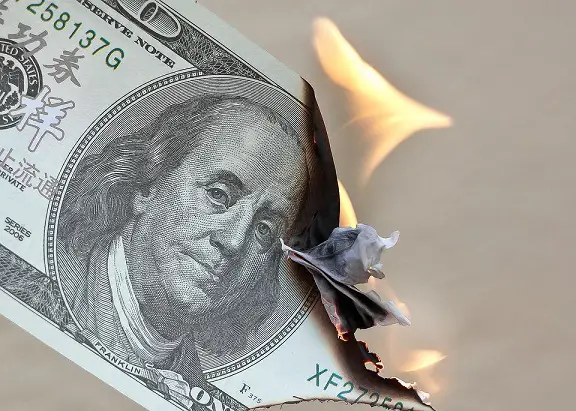Former White House official Paul Craig Roberts is warning that as more nations all over the globe move away from using the dollar in energy trade, the consequences for the United States economy could be quite severe.
A former US Assistant Secretary of the Treasury for Economic Policy in the Reagan administration, Roberts penned an entire article on the topic, which was published Monday. It warned that if the petrodollar were to cease being the predominant means of settling energy contracts, the value of the dollar would plummet, which would have massive effects on US inflation, interest rates, and economic growth.
In the article he cited Saudi Arabia’s recent statement that it would be open to accepting payment for oil in other currencies beside the dollar. Since at present nations looking to purchase oil must retain a reserve of dollars to use for payment, if Saudi Arabia were to allow payment in other currencies, nations would immediately release their reserves of dollars back into the global market. The surge of additional dollars would immediately cause the value of the dollar to drop precipitously, potentially triggering a hyperinflation event.
By forcing nations to pay for oil in dollars, the Saudis generate an additional demand for greenbacks, which elevates the value of the currency. Roberts explained, “This is a major threat to Washington’s power and to the financial power of American banks.”
Roberts went on to point out that for fifty years, the petrodollar has allowed the financing of the United States’ massive budget and trade deficits. He added, “The petrodollar supported the continuing role of the dollar as world currency after President Nixon closed the gold window in 1971, in effect ending the Bretton Woods system following WWII that gave the US dollar the reserve currency role.”
Now Roberts pointed out that by weaponizing the dollar in geopolitical terms, and using it in sanctions and for asset seizures, Washington has generated a motivation among nations to settle trade contracts in their own currencies, “in order to escape Washington’s ability to threaten and punish them for serving their own interests rather than Washington’s.”
Roberts concluded the article by pointing out that if the Saudis do drop the petrodollar, then Americans can expect to see harsh inflation and the massive interest rates the Federal Reserve will deliver to try and combat it – unless the Federal Reserve decides to begin printing money to finance the national deficit. In that case a hyperinflationary effect would be produced by the monetary inflation being added to the collapse in the foreign exchange value of the dollar due to weak global demand for dollars.
Roberts warned, “Should this come to pass the implication for the US is massive austerity.”

